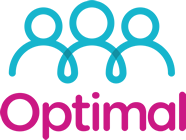Lockdown v3.0 is changing. Restrictions are lifting in increments ranging from two to five weeks, with each stage of the journey affecting the commercial sector in different ways.
Whether yours is an essential service our nation relies on – emergencies and healthcare, education, manufacturing, logistics, construction, essential retail – a business that has continued to trade behind closed doors during the lockdown or one forced to close temporarily, it’s crucial to understand rules specific to you as journey toward ‘normal’. And, while the lockdown is ending, there are still plenty of rules and guidelines in place we’ll all need to continue following to help minimise the spread of the coronavirus.
So, what do you need to know about your sector and how our exit from the lockdown will impact both your customers and your teams? Here is a reminder of the proposed ‘roadmap to freedom’ set out by our Prime Minister back in February:
March 8 – primary and secondary education providers reopened to all students.
March 29 – some sporting facilities are permitted to reopen providing they can deliver their activities outdoors – football, rugby, netball or cricket clubs for children, for example – and tennis courts, golf clubs and outdoor swimming pools for all ages.
April 12 (and not before) – hospitality reopens in part, but only where pubs and restaurants can serve customers in an outdoor setting, and self-catering holiday providers within the UK are open to trade. Commemorative events such as weddings and funerals can have up to 15 people in attendance.
May 17 (and not before) – indoor entertainment such as theatres, cinemas and children’s play centres can reopen, alongside any indoor sports facilities. The numbers permitted at weddings and funerals increases to 30.
June 21 (and not before) – nightclubs, large events in stadiums and music festivals are permitted.
Note that the above dates are provisional and subject to change where the Government – or the ‘science’ providing the guidance – deems it unsafe to proceed.
Assuming all does go to plan, the UK could be living a life close to its previous normal by the summer. Yet some of the measures in place, certainly around social distancing, might well live on after June 21 with the Government continuing to encourage minimal people movement unless it’s altogether necessary.
The message is clear – continue working from home where possible
For those businesses able to do so, the Government has asked for employers to continue supporting a ‘work from home’ policy wherever possible, even post-lockdown. It’s a trend many may well stick to on a permanent basis, with lessons learned as to how effective it can be for some companies, as well as extremely cost-efficient.
Some employees prefer the flexibility work from home allows, not to mention the time and expense it saves on the daily commute. Technology has certainly stepped up, too, allowing for teams to continue supporting one another from multiple remote locations. However, some of your staff do find it more difficult to work from home for a plethora of reasons and while limited space or access to technology is less a worry than issues around mental health, the reasons for an individual wanting to attend work to perform their job are all viable and must be considered.
If you’re re-opening, ensure it is safe to do so
For businesses who remained open during the latest lockdown – and those about to join them – it is critical each one provides a Covid-secure workplace to protect their teams.
As part of your ‘return to work’ strategy, employers and HR must have measures in place to ensure a safe environment for everyone. This includes conducting a risk assessment of your workplace; if you’re unsure what to include in yours, the Health and Safety Executive Covid-19 Risk Assessment document is a great place to start. The UK Government website also includes clear guidance on Covid safety that’s tailored specifically to individual sectors to help every business appreciate their legal obligations around compliance.
If you’re still unsure on how the lifting of the lockdown restrictions affects your business, seek advice from a professional people expert as soon as possible.
In need of some HR advice? Wherever you are in the UK, you can arrange a chat with one of our friendly professional HR advisors at any time.
Call us on 0330 0881857 or email enquiries@optimal-hr.co.uk
We’re also on Facebook, Twitter, Instagram and Linked In!



